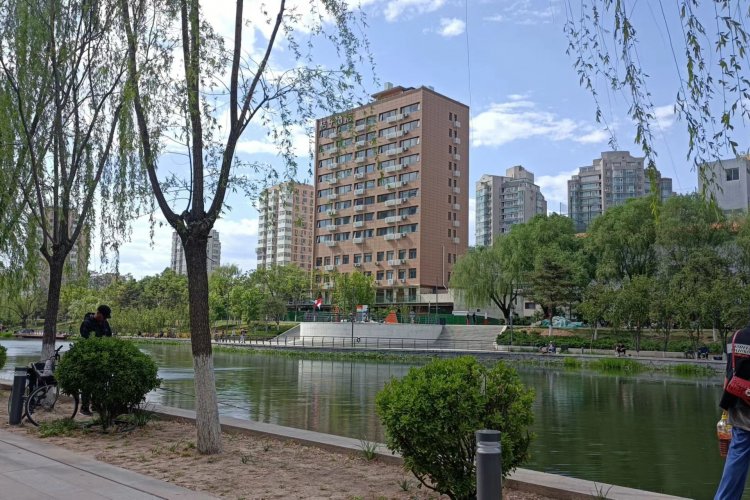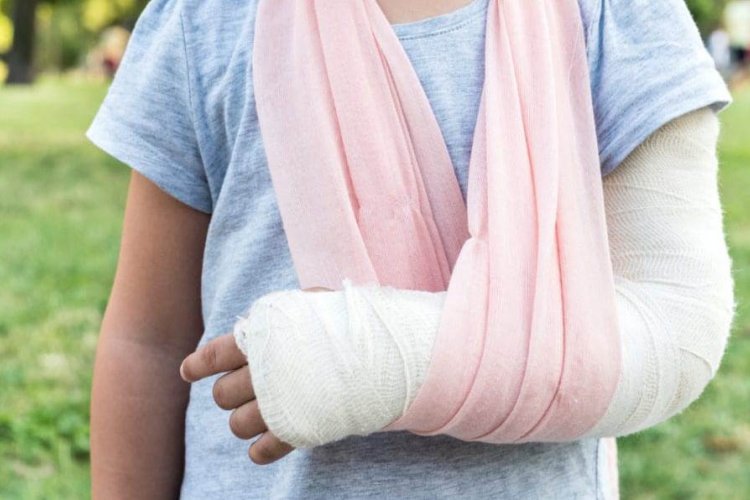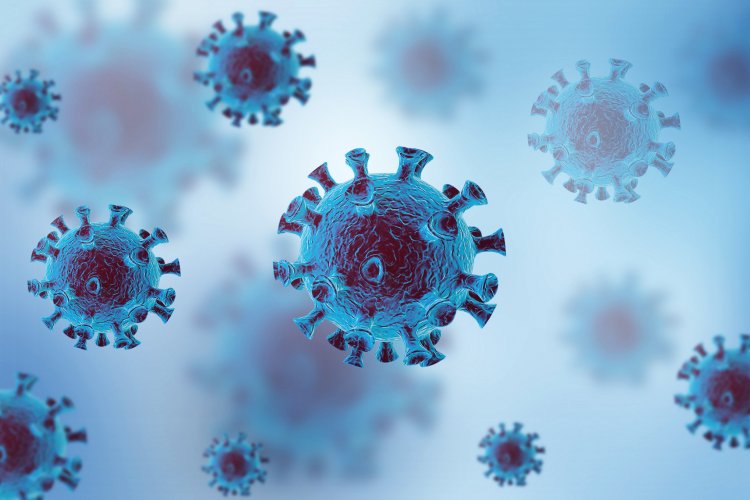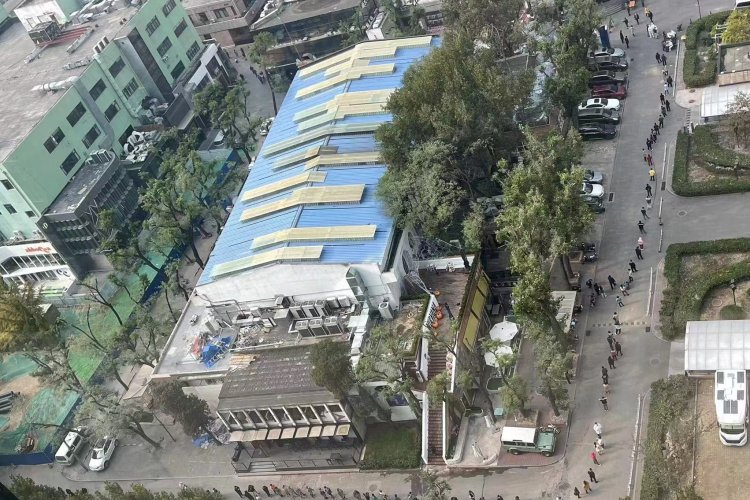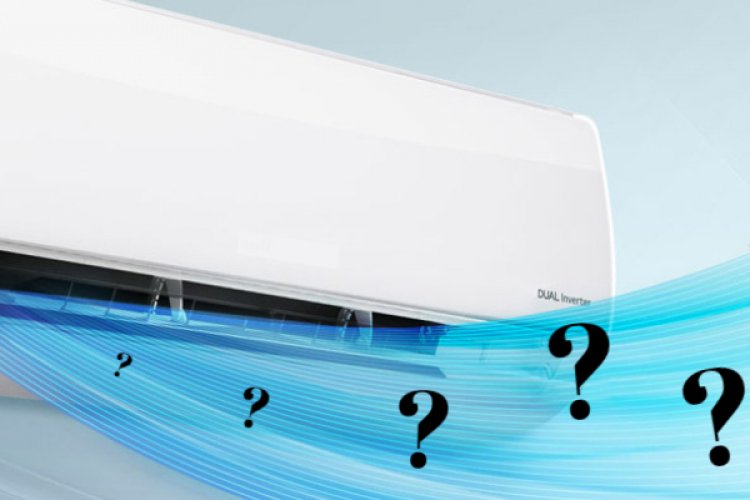Beijing Air Pollution and Your Health
With Beijing's air pollution casting a dark gray shroud over our city sky this summer, its hard not to wonder what all that particulate matter, ozone, and other contaminates are doing to your body. We asked Dr. William Chickering, one of four American Board-certified Emergency Physicians at BJU, a few questions about it. Dr. Chickering has lived in Beijing almost four years after time on the faculty of the Medical College of Virginia. He has practiced for prolonged periods in Guatemala, Cameroon, Dominican Republic, and Korea.
What are the short term effects of being exposed to high levels of air pollution?
If the level is high enough, most people will experience some combination of sinus congestion, runny nose, tearing/burning eyes, or dry cough because these are irritative phenomena, not allergic. You don’t have to be an allergic person to be affected by Beijing air. The good news is that the great majority of otherwise healthy people suffer no lasting harm, even with 4-5-6 years of exposure.
What are the long term effects?
Again, speaking of the otherwise healthy, only two groups seem to be at any risk for lasting harm. One is children, a tiny percentage of whom may develop asthma or suffer slightly retarded lung growth that would not have occurred in a cleaner environment. The other is people who appear healthy but who may have underlying coronary artery disease. A very small number of these might have a heart attack who otherwise might not have done so, or not so soon. Acute exposure to bad traffic fumes is thought to be a trigger. Does the number of respiratory cases increase when the pollution is very bad? Studies from the US and Europe have shown that emergency rooms see an increased number of respiratory cases when the air is bad. But this blip is nearly imperceptible on the scale of only one emergency room, especially one whose patient population is skewed toward youth and good health by being largely expats.
What sort of treatments are available?
The answer is more in the realm of things to do rather than take. (That said, I personally take 1-2 capsules daily of Omega 3 Fatty Acids derived from fish. But I’m middle-aged and, 20 years ago, was a smoker, thus could have underlying heart disease. If I knew I had heart disease, I would also be taking aspirin and a statin.)
Talking only of irreversible effects of air pollution, the main culprit is traffic-related. So go to Google Earth. Check out the location of your house, your health club, your jogging route, your commute to work, to see how close they are to major streets -- Ring Roads, or 4-lane streets. If greater than 150 m away, good. If not, and you or a family member is in one of the higher risk groups I mentioned, you might want to consider a change if it’s practical. (Would I change my kids’ school because of this? No. But would it affect my thinking if I were choosing a school? Yes, a little.)
Another thing you can do is get a HEPA air-purifier to run at night in your bedroom.
A third thing is exercise. Even if it’s outdoors, it’s net effect is positive. (But the effect is a lot more positive if you do it away from big roads, or in a health club with AC and closed windows.)
There's a rumor that "Living in Beijing is like smoking a pack a day." In actuality, how does breathing in pollution compare to smoking?
Two years ago I was asked the same question and answered, “No, it’s like living with someone who does”. Cute, but an overstatement. Let me rectify that here. Living in Beijing is like living with someone who sneaks smokes: you build up a small amount of exposure, and a big grudge.
What pollutants in Beijing's air are the most dangerous?
Vehicle emissions, especially diesel. Fortunately, Beijing keeps heavy trucks out of the city except between the hours of 11pm and 6am. This means that an air-purifier in your bedroom does some good.
Could you elaborate on what is meant by the API ratings of "hazardous," "very unhealthy" and "unhealthy?”
Basically these measure the irritant stuff in the air (dust, fine particles), not the irreversible-harm stuff (ultrafine particles from vehicles). If you are very prone to the irritant effects, then “unhealthy” is talking to you. Only slightly prone, you are bothered only when “very unhealthy” levels are reached. As to “hazardous”, most everyone will suffer some irritant effects.
Anything else that can be done?
People very prone to irritant effects may have an allergic component. If your sinuses clog or you start to wheeze every winter and every Asian dust storm spring, you may benefit from steroid sprays during your bad season(s).
Masks do help with the irritant stuff. These are the circular white cups called N-95. They may even help with the irreversible-harm stuff though probably not much.
Related stories :
Comments
New comments are displayed first.Comments
![]() lioralourie
Submitted by Guest on Tue, 08/31/2010 - 23:58 Permalink
lioralourie
Submitted by Guest on Tue, 08/31/2010 - 23:58 Permalink
Re: Beijing Air Pollution and Your Health
What happened to Dr. Chickering's great research he did last year or so, for his URBANE article?
For children, the risks are GREAT and pretty well established (adverse birth outcomes, infant mortality, developmental disabilities, higher rates of cancer, pulmonary disease and poor lung function....and I'l throw in there possibly unknown genotoxic effects)
WHY is he is sugar coating the issue? Maybe he forgot what he researched.
Take a look at these peer reviewed journal articles, and decide for yourself.
The Effect of Air Pollution on Lung Development from 10 to 18 Years of Age
http://www.nejm.org/doi/full/10.1056/NEJMoa040610 (and they started with ten year olds, to show the effect, not infants!)
Air Pollution Threatens the Health of Children in China
http://pediatrics.aappublications.org/cgi/content/full/122/3/620
Ambient Air Pollution: Health Hazards to Children
http://pediatrics.aappublications.org/cgi/content/full/114/6/1699
Personally, we decided that if we were going to live in a city like Beijing, we would need to buy IQ Airs. Two at first, then boosted it to three. (one bought used). I have been pregnant and nursing all these years, and our three kids aged 6 and under were all born in China. IQ Air is hands down the best air filter in the world- even has carbon media for removing noxious gases like VOC's. And it's not nearly as expensive as it seems...I calculated it, and I can use it for years then resell it for something like 70% of what I paid for it new (used one I can resell for a very similar amount, depending on the filter life at the time of sale). So that's not a huge cost at all, the way I see it. Big outlay on the front end, yes. But not a big cost. And it's just one of those non negotiable things.
We do everything we can to mitigate the toxic effects of living in practically the dirtiest city in the world.
Eat super healthy. Whole grains, organic foods - by and large unprocessed.
Actively detox periodically
Nutritional supplements, vitamins, minerals, immune support, herbs.
No fluoride or other toxins, no food additives, no vaccines, no medications unless very necessary- even Tylenol/Panadol for children has artificial colors and sweeteners, and depresses glutathione- disrupting the immune system.
p.s. anyone interested can join http://health.groups.yahoo.com/group/beijing_organic_consumers
and/or http://groups.yahoo.com/group/Beijing_Mamas
![]() rstcyrmd
Submitted by Guest on Thu, 08/19/2010 - 11:12 Permalink
rstcyrmd
Submitted by Guest on Thu, 08/19/2010 - 11:12 Permalink
Re: Beijing Air Pollution and Your Health
You definitely need a filter that says "HEPA", otherwise don't even bother. There are plenty of filters and most are under 1 grand, including Alen, BlueAir and Hunter. Usually they're more expensive here in China...
![]() admin
Submitted by Guest on Tue, 08/17/2010 - 18:19 Permalink
admin
Submitted by Guest on Tue, 08/17/2010 - 18:19 Permalink
Re: Beijing Air Pollution and Your Health
That picture is old because:a. all the taxis are the old 1.2kuais.
b. you can't see that far down a street nowadays.
not to mention far fewer bikes these days
ironic, isn't it -- the city's been re-engineered over the past decade for cars, at the expense of pedestrians and bicyclists
now the traffic and pollution is so bad they're desperate to reverse the trend
![]() jameswa
Submitted by Guest on Tue, 08/17/2010 - 17:47 Permalink
jameswa
Submitted by Guest on Tue, 08/17/2010 - 17:47 Permalink
Re: Beijing Air Pollution and Your Health
That picture is old because:
a. all the taxis are the old 1.2kuais.
b. you can't see that far down a street nowadays.
![]() Aier2
Submitted by Guest on Tue, 08/17/2010 - 13:42 Permalink
Aier2
Submitted by Guest on Tue, 08/17/2010 - 13:42 Permalink
Re: Beijing Air Pollution and Your Health
Those HEPA things are 2 to 5 grand.
Is the difference really worth it?
Validate your mobile phone number to post comments.

